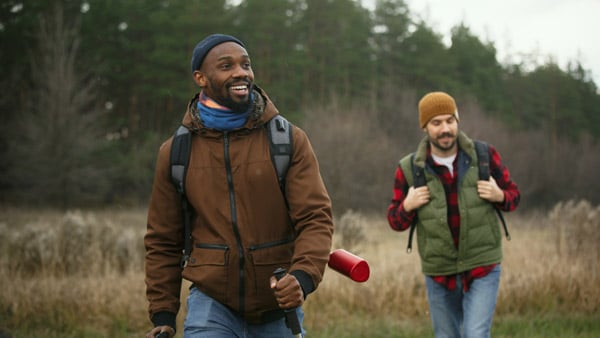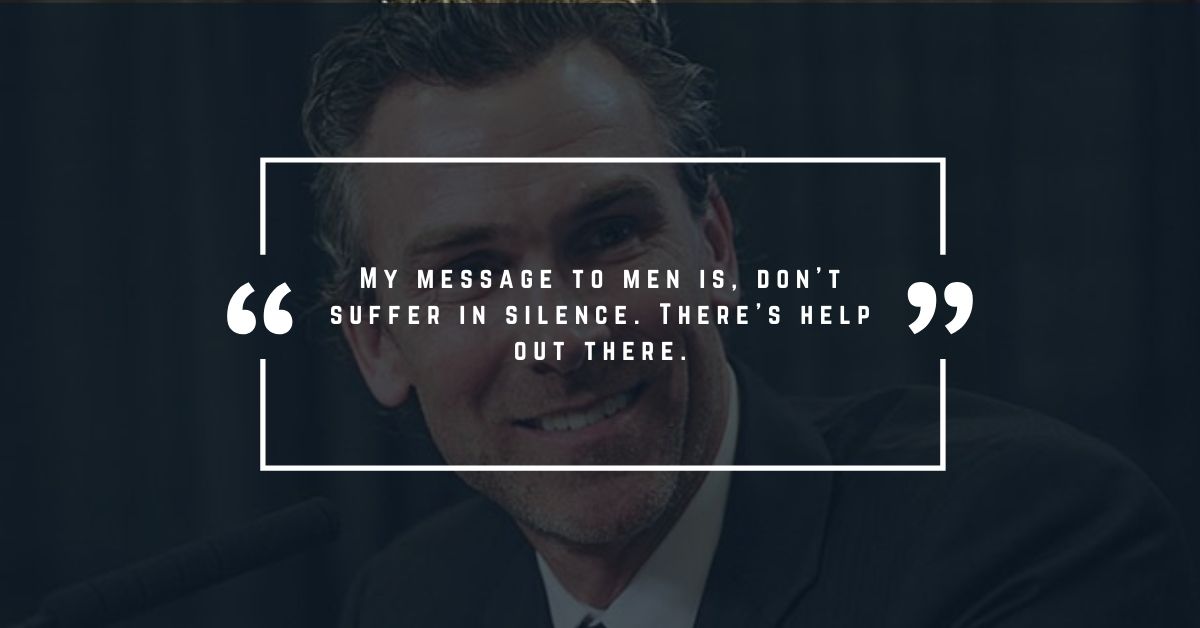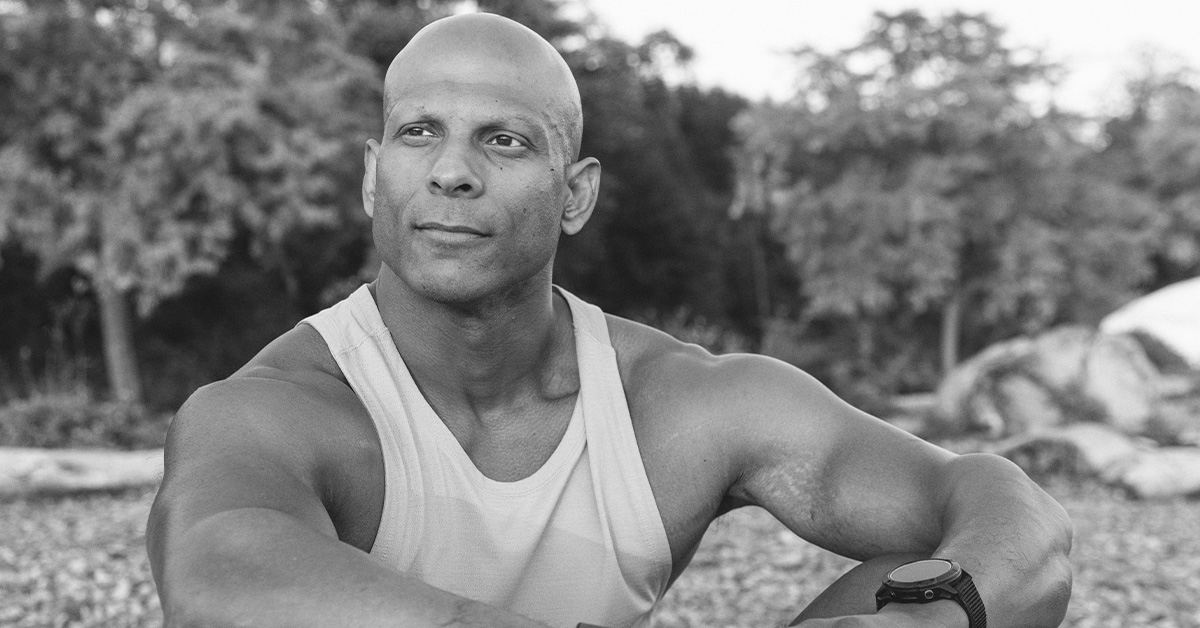You can be surrounded by people and still feel lonely. Loneliness isn’t about how many friends you have; it’s about whether your need for genuine connection is being met. And what that looks like is different for everyone. While half of Canadian men are at risk of social isolation, feeling lonely and being isolated aren’t always the same thing.
As a human connection expert, author, and keynote speaker, I’ve noticed that many people are starting to take stock of their relationships, who their true friends are, who their acquaintances are, and who really matters most. Some have realized they feel lonely even within their own social circles.
Feeling lonely isn’t about the number of people around you; it’s about how supported and understood you feel.
Four common factors of loneliness:
- Lack of meaningful social support
- A negative perception of your relationships
- Poor mental and/or physical health
- A lack of work/life balance
Breaking through loneliness with empathetic curiosity
Empathetic curiosity — asking questions that help you understand someone’s reality rather than trying to “fix” them — can be a powerful way to break through loneliness. When you’re able to interact with people beyond small talk, it can help you feel more supported, connected and content. It’s also how good friendships are formed. Because the truth is, making friends as an adult can be hard.
If you’d like to expand your wolf pack – even if you don’t think of yourself as a “people person” – here are some simple ways to connect with others in meaningful ways.
Ask first, talk second
Asking questions and listening to the answers is a great way to start getting to know someone. That way, there’s no need to have a dazzling talking point ready in your back pocket all the time. Let them do the talking!
Open-ended questions that start with “how” and “what” can lead to more personal answers. Try asking:
- “What are you most grateful for?”
- “What’s one win from this week that you’re proud of?”
- “If you could live through the pandemic again, what would you do differently?”
- “How can I show up for you in bigger ways?”
- “What’s the question I failed to ask to understand your reality?”
Stay focused
There’s more to a rewarding first-time conversation than a single question and answer. That’s why it’s important to focus on the other person and avoid distractions.
Part of this involves listening to what ISN’T being said. Does the tone of their voice sound angry, sad or excited? Listen with your eyes. Is their body language revealing clues about how they’re feeling? For example, avoiding eye contact whenever a particular subject is mentioned — like an ex-partner or former employer — is a sign they may be struggling with something. Asking about that thing shows you’re paying close attention, which goes a long way toward strengthening new social connections.
Go bigger with small talk
After your initial exchange, build on what you’ve learned and noticed. “What are you looking forward to the most this summer?” or “How do you feel about being single/looking for work again?”
Deeper topics can lead to disagreements and differences of opinion, but this doesn’t have to be a conversation killer. In fact, the opposite is often true. Instead of taking issue with a topic, try to meet them where they’re at. By refraining from jumping to judgment, a conversation becomes a fun and interesting mutual exchange rather than an off-putting argument.
Find out what makes people happy
Understanding what makes a person happy is a great starting point for connecting with someone. The late psychiatrist Dr. Gordon Livingston did incredible work on the happiness equation. He found that the happiest people had three things in common: something to do, someone to love, and something to look forward to.
If you don’t know much about the person in front of you, ask them questions about these things to find commonalities and to get them to talk about themselves. What is this person all about? What are they excited about? How can I be a champion of what they’re doing? It creates a much more positive experience.
Walk and talk

Guys often feel more comfortable having deeper conversations when they’re side-by-side with somebody or while doing an activity. Connecting on a deeper level while looking someone directly in the eye can be uncomfortable.
That’s why talking while walking or getting active is a great way to build friendships.
Join the club
Pursuing your interests with others who share them is a great way to make new friends and deepen your appreciation for your chosen pursuit. Plus, a set schedule helps you make time for these activities.
Pick something you enjoy doing — bowling, watching sports, video games, barbecuing, hiking, playing darts, the list goes on — and chances are there’s a club, team or special event in your area that welcomes new members or participants.
Go out with your tribe
Being more social can be as easy as planning a night out with your buddies a couple of times a month. Go to a movie or the pub, head out for a walk or bike ride, or anywhere where you can hang out and have fun. Because our busy lives often get in the way of doing these kinds of things, it’s a good idea to set aside a regular time — say, every other Friday after work — for these get-togethers.
And yes, going out for a pint can be good for you as long as it’s about connection, not just the drinks. You never know who might join in or how a new friendship might start.
Start a new friendship
Making new friends can sometimes feel awkward, but it’s worth it. You might meet someone new at work, the gym, your kids’ activities, or even at the pub. You might be surprised how open people are to making new friends when you connect on a deeper level beyond small talk.
The bottom line
Meaningful connection doesn’t require perfection, just intention. Small, genuine efforts can make a big difference in how supported, understood, and happy you feel.
Editor’s Note: This article was originally published in July 2022 and updated in October 2025 to update resources and ensure accuracy.






Yes I did enjoy the article very much very helpful.
I have a very close friend I hang out with a lot. We had known each other for a long time we moved. I came back to my home town because our marriage separated. My friend & I have done a lot of connecting & talking about a lot of deep things & I enjoy our friendship. Would like to learn more ways of how to make more deep friendships.
Thanks for sharing, Kevin. Riaz is an amazing resource when it comes to the art of communicating in a meaningful way with other human beings. He wrote a book called “Every Conversations Counts” (link to it here). We also have him sharing more thoughts on this in a podcast coming up this Tuesday! You can check out more info on that here.
~Canadian Men’s Health Foundation team member
You could join a Men’s Shed. There are now more than fifty “Sheds” in Canada, and growing rapidly. A new Canadian Men’s Shed Association has just been formed.
I have belonged to Men’s Shed Vernon since it began in 2018, and highly recommend it for anyone who is challenged to initiate conversation.
Men’s Sheds are a great place to learn, make friends, and give back to your community.
Yes! We have heard really great things, Raymond. We have other articles on our website that recommend Men’s Shed. We would actually love to hear more about your experience! Can we contact you?
~Canadian Men’s Health Foundation team member